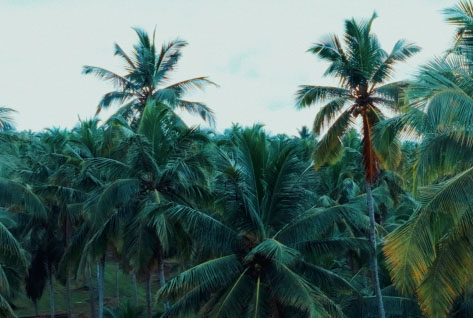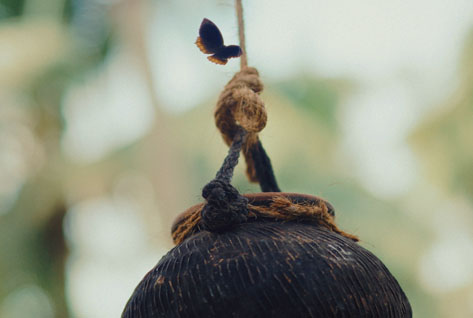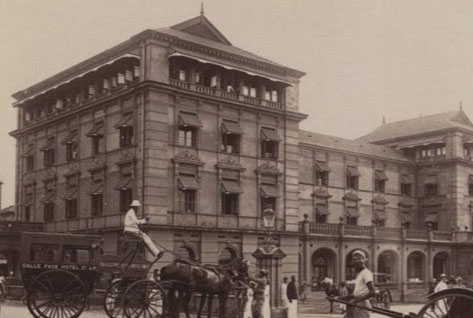Our Arrack
Back in the early 1900s, in Sri Lanka, there was no such thing as high-quality arrack. Despite being an ancient, mystical spirit, first written about by Marco Polo in the 13th century, it was never considered to be finely made, or even particularly palatable.
With the establishment of a local family distillery in 1924, however, that began to change. Pioneering the commercial distribution of artisanal arrack for the first time ever, Rockland Distilleries, over the coming a years, took a centuries-old, underappreciated spirit and improved it, refined it, turned it into something special.




Today the distillery continues to make Ceylon Arrack and has never been more proud of it – an art handed down through four generations of family, an elixir derived from many more generations of coconut trees. Hold a bottle of Ceylon Arrack in your hand and feel its soul – born of nearly a hundred years of hard work, capturing the essence of a beautiful island in the Indian Ocean.
We believe in honest methods, in honesty in business, in paying our taxes and not always succumbing to the easy path. Integrity was one of our founding values, and one we still hold very dear. There is nothing hurried or mechanized about how the distillery makes arrack. Rather, it relies on the ancient art of sap collection, always done by hand, and a traditional distilling process that has stood the test of time.
The result is a 100 per cent natural, wonderfully multifaceted coconut spirit that intrigues you, entices you, warms you and leaves you wanting more. The vision of our founders was to make high-quality arrack and introduce it to the world. We hope each taste of Ceylon Arrack inspires you to believe in your dreams, too.
First Traces
No-one knows when arrack – the great coconut spirit – was first discovered. The sweet, milky wine from the coconut flower was certainly tapped during the reigns of the ancient kings of Lanka, over two thousand years ago. Tales live on of how the fermented wine was once fed to the king’s elephants – to give them courage–before the mighty beasts charged into battle for the glory of their kingdom.
When exactly the wine was purified and concentrated into the spirit we now know as coconut arrack has been lost in time. However, James Tennent, writing in 1859, mentions arrack as an ‘exhilarating’ drink enjoyed by Arab traders visiting the island as early as the fifth century AD:
Ibn Wahab appears to have looked back with singular pleasure to the delightful voyages which he had made through the remarkable still-water channels in the seaboard of Ceylon… Here months were consumed by the mariners, amidst flowers and overhanging woods, with the enjoyments of abundant food and exhilarating draughts of arrack flavoured with honey.
While its exact origins are still a matter of debate, there is no doubt that arrack is one of the oldest distilled spirits in the world, predating Scotch and Irish whiskies, vodka, gin and rum.
Arrack was once a Hindi word that encompassed all distilled spirits. Coconut arrack is quite distinct from the ‘arak’ or‘araq’ made from fermented fruits (commonly dates and raisins) in Africa and the Middle East, and from the Batavia arrack distilled from molasses in Java and Indonesia.
Interestingly, the word ‘punch’ is thought to have been derived from the Hindustani ‘panch’, which means ‘five’, a reference to the number of ingredients for the drink which traditionally were arrack, sugar, lime juice, spice and water.
There is plenty of evidence to show that by the latter period of Portuguese occupation in Sri Lanka (1505 – 1658), primitive distilling was an established cottage industry. The island’s most famous captive of the seventeenth century, the English sailor Robert Knox, who spent nineteen years in Dutch captivity and wrote An Historical Relation of the Island of Ceylon, distilled arrack himself, writing that the drink ‘excelled any in any other part of South Asia’. The industry grew and flourished under the Dutch and British in the following centuries of colonial rule.
Ceylon Arrack is a marrying of traditional hand-harvesting, natural fermentation and ageing in native wooden vats with ultra-precise distillation. Modern, delicate and versatile, it’s perfect for the contemporary global bar world.
